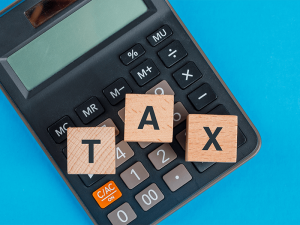Tax deductions are probably the best thing you would want to wake up to as a small business owner. Isn’t it?
You are in the right place if you want to keep your finances in order, feed your family, and never go broke while paying your taxes. Paying huge taxes can be difficult, but no longer if you know the right strategy.
What Are Tax Deductions for Small Business Owners?
Tax deductions for small business owners are specific expenses or costs that can be subtracted from your total business income to reduce the taxable income on which you owe taxes. Essentially, they allow you to pay taxes on a lower amount of income, which can significantly lower your overall tax liability.
The IRS provides the best tax deductions for small business owners that can help you reduce the amount of income subject to taxation.
For instance, the Section 179 Deduction. Instead of depreciating certain qualifying business assets over a number of years, the Section 179 income tax deductions for small business owners enable them to write off the cost of those assets in the year they are put into use.
Which Tax Deductions Are Common for Small Businesses?
Common tax deductions for small business owners can significantly reduce your taxable income, saving you money. Here are some essential deductions to consider:
- Business Expenses: Deduct ordinary and necessary costs for running your business, including rent, utilities, office supplies, and professional services. A business continuity plan might keep you in line with business expenses.
- Home Office Deduction: If you have a dedicated workspace at home used exclusively for business, you may be eligible for an IRS tax deduction, covering a portion of your rent.
- Vehicle Expenses: You can deduct expenses related to business vehicle use, like mileage, fuel, maintenance, and even a portion of your lease or loan payments.
- Meals and Entertainment: A portion of meals and entertainment expenses related to your business can be deductible if you operate from a remote workspace.
- Health Insurance Premiums: If you’re self-employed, you can typically deduct health insurance premiums for yourself, your spouse, and dependents.
- Retirement Plan Contributions: Contributions to retirement plans like a solo 401(k) are deductible, helping you save for the future.
Are Retirement and savings Options Tax-Advantaged and how to reduce tax burden?
The key tax-advantaged retirement and savings options businesses commonly use are 401(k) Plans. These retirement savings accounts allow employees to contribute a portion of their pre-tax income to the plan. Employers often offer matching contributions, which can also be tax-deductible for the business. Contributions and earnings within the 401(k) are tax-deferred until withdrawal.
- Depreciation: Deduct the cost of assets like equipment and machinery over several years through depreciation.
- Tax Benefits of Charitable Donations: Those contributions are typically deductible if your business donates to qualified charities.
Do charitable contributions offer tax benefits for planning?
Yes, it does.
- You can only deduct charitable contributions to qualified organizations. This means that the organization must be a registered charity with the government.
- You must have documentation of your charitable contributions, such as a receipt or a bank statement.
- There are limits on how much you can deduct from charitable contributions each year. For 2023, the limit is 60% of your adjusted gross income (AGI) for most types of charitable contributions.
- However, there are some special exceptions for qualified contributions of appreciated assets.
- If you are considering making a large charitable contribution, speaking with a tax advisor to discuss how it will impact your tax liability is important.
Tips to Maximize Tax Deductions with tax credits: Smart ways to Save
- Make a list of your deductions: If you have a lot of deductible expenses, such as medical bills, charitable contributions, or house mortgage interest, itemizing your deductions instead of taking the standard deduction may save you money.
- Claim all of the tax credits to which you are entitled: There are numerous tax credits available, including the Earned Income Tax Credit (EITC), Child Tax Credit, and American Opportunity Tax Credit. List all the tax credits you may be entitled to and claim.
- Combine your tax deductions and credits: You may be able to save money if you have a lot of deductions and credits. However, noting the most overlooked tax deductions for small businesses can be rewarding.
How Can You Reduce Your Tax Burden by Timing Your Income and Expenses?
Timing is everything when it comes to managing your tax burden in a small business setup. You can use various strategies to shift income and expenses to their advantage:
- Deferred Income: If possible, delay billing clients or customers until the next tax year to reduce your current year’s taxable income.
- Accelerated Expenses: Consider prepaying certain business expenses, such as rent or utilities, at the end of the year to claim deductions sooner.
- Depreciation: Utilize accelerated depreciation methods for eligible assets to increase deductions in the early years of ownership.
- Inventory Management: Review your inventory at year-end to identify obsolete items and write them off to reduce taxable income.
Tax reduction blunders: You lose money!
Here are some frequent blunders to avoid:
- Personal and business spending should not be mixed: Keep personal and business expenses separate. To avoid this, maintain two separate accounts, one for home expenses and the other for workplace expenses.
- Excessive Deductions: Claiming excessive deductions may result in an audit. Ensure that all deductions are correct and backed by appropriate documentation.
- Not Tracking Mileage of Vehicle: Keep meticulous track of your mileage if you use your vehicle for business purposes. Failure to do so may result in deductions being lost.
- Failure to Document Business Reasons: Clearly document the business reason of each cost, including meals, travel, and entertainment deductions, and keep an update on eligible deduction
Know tax regulations and never fall out of race!
Staying in compliance with tax rules and regulations is a basic responsibility for small business owners and important for legal compliance and financial security.

- Keep up to date: The tax landscape is dynamic, with legislation and standards changing constantly. Making time to keep up with tax laws and regulations that apply to your company is essential.
- The IRS website, official publications, and respected tax news sources can all provide helpful insights into developments that may affect your tax obligations.
- Rigorous record-keeping is required: Maintain accurate and well-organized records of all financial transactions, including income, expenses, receipts, and invoices. This ensures transparency and streamlines the process of preparing accurate tax returns.
- Meeting filing deadlines is non-negotiable: Missing deadlines can result in penalties and interest charges that could strain your business finances. Establish a robust system for tracking and meeting tax deadlines to stay on track.
Why Consider Hiring a Tax Advisor for Expertise?
- A better understanding of tax deduction complexities: For small business owners, it can be challenging. That’s where a tax advisor or tax professional comes in. Here are some compelling reasons to consider hiring one:
- Expertise: Tax advisors are well-versed in the intricacies of tax law and can help you identify deductions you might have overlooked.
- Tax Planning: They can develop tax-efficient strategies tailored to your specific business, ensuring you make the most of available deductions.
- Audit Support: In the event of an IRS audit, a tax advisor can provide valuable support and representation.
- Time Savings: Outsourcing your tax responsibilities allows you to focus on growing your business rather than getting bogged down in tax paper
SWAT providers just got your back!
Empower Your Small Business
Maximizing tax deductions for small business owners is not just about reducing your tax bill; it’s about managing your finances intelligently and strategically. By taking advantage of tax-advantaged retirement and savings options, employing tax-loss harvesting, timing income and expenses wisely, leveraging charitable contributions, seeking expert advice, avoiding common mistakes, and staying compliant with tax laws, you can optimize your tax situation and keep more of your hard-earned money for the growth and success of your business.








